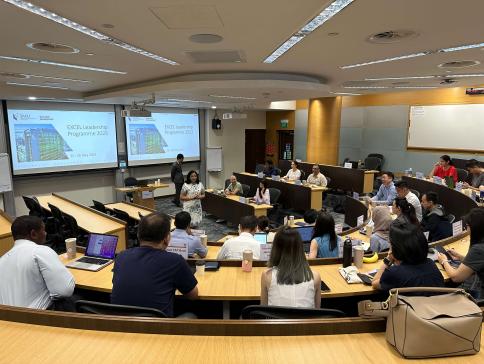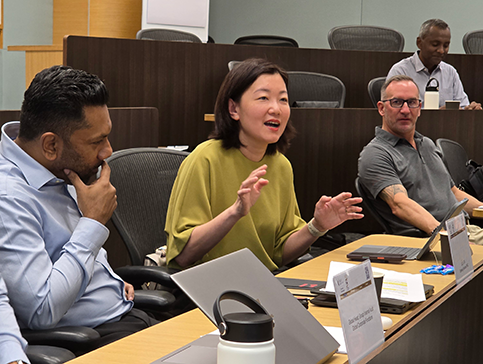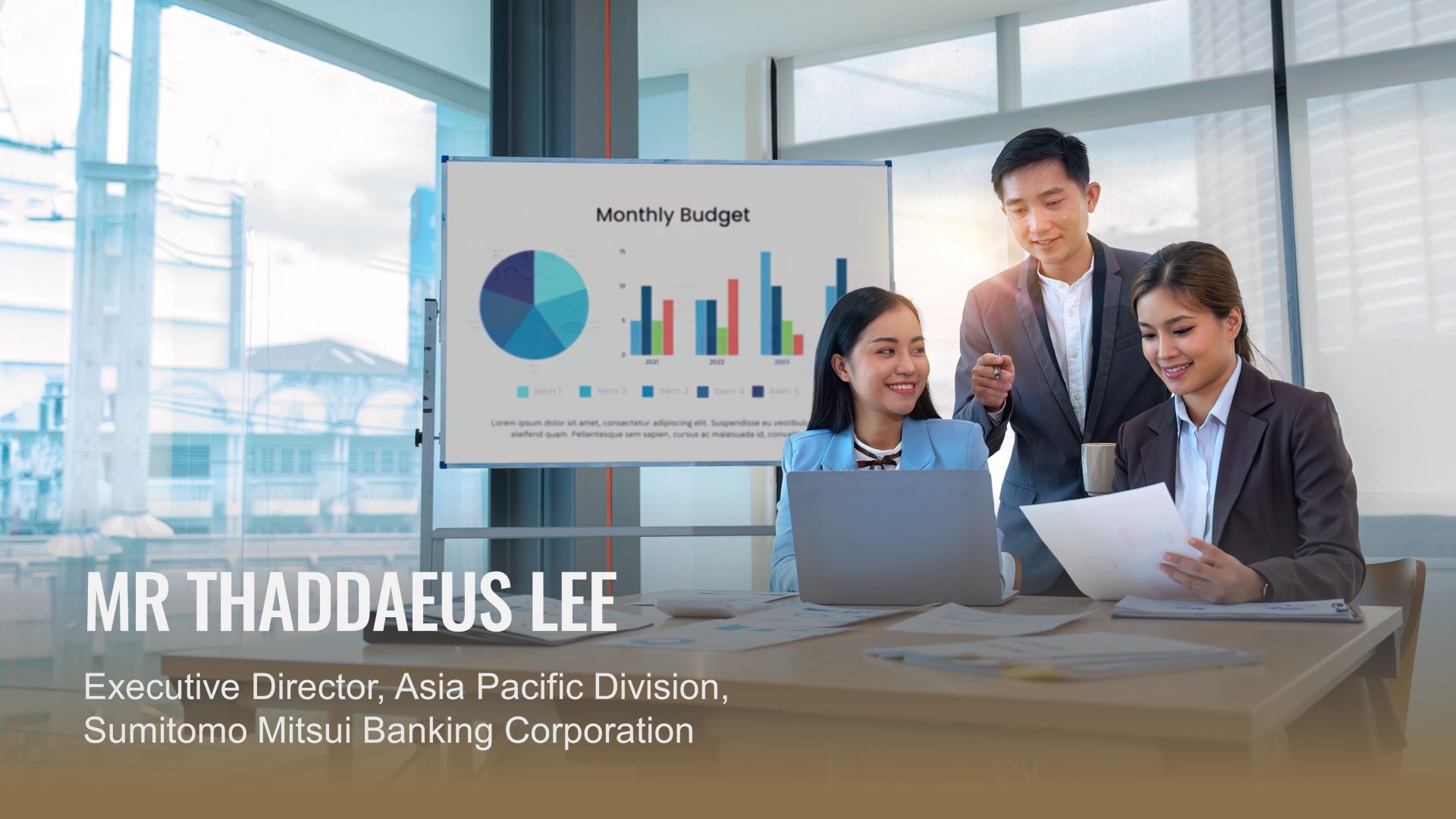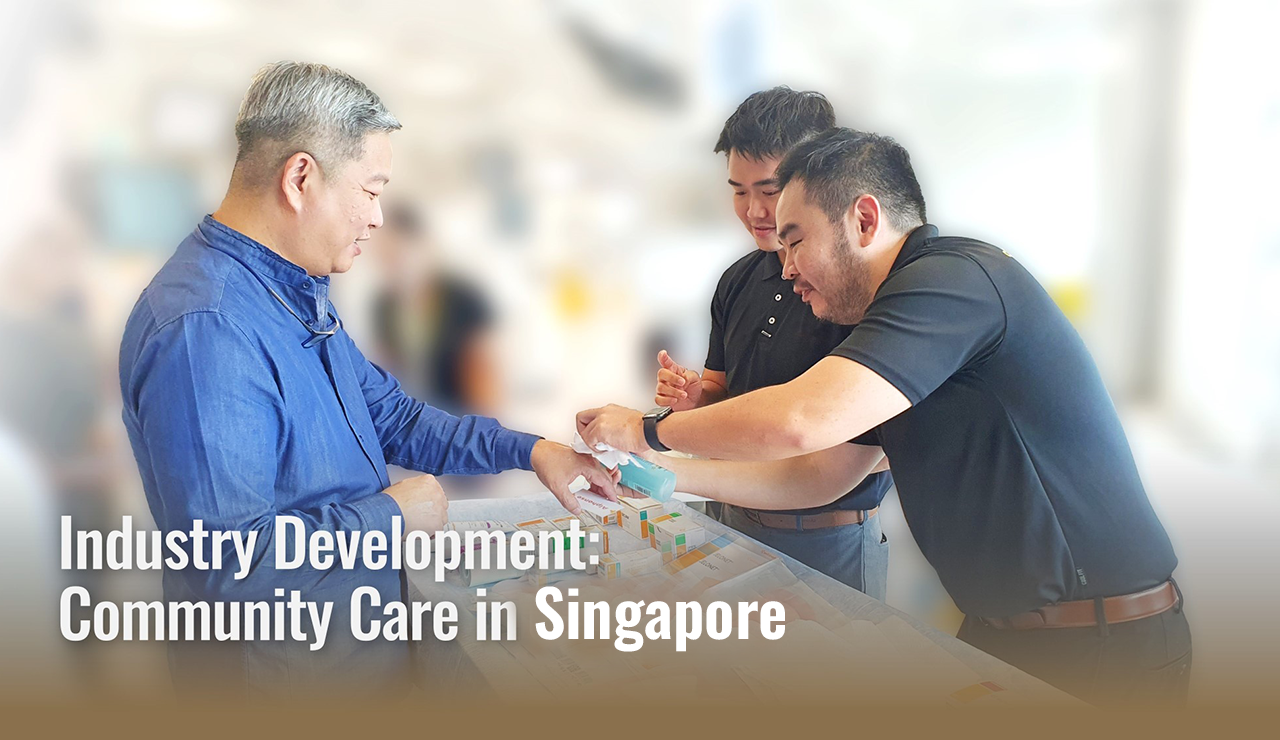Empowering Executives for Organisational Growth

Short Courses
Our executive education programmes provide an opportunity for executives to learn from industry experts, gain insights into emerging trends, and push themselves beyond their comfort zone.
With a focus on practical applications and hands-on learning, we offer a unique platform for all levels of executives to develop their leadership skills, advance their careers and widen their professional network.

Customised Programmes
Our programmes are fully customisable to cater to your organisation's unique needs and business objectives.
This tailored approach equips your teams with targeted insights that strengthen their day-to-day performance, supports employee development and cultivates a culture of continuous learning and innovation that fuels sustainable business growth in your organisation.
Element not found.
Element not found.
Our Value Proposition
By combining cutting-edge research, world-class faculty, and real-world case studies, SMU Executive Development (SMU ExD) delivers executive education programmes that are tailored to the specific needs and goals of each organisation.
We provide our learners with a truly transformative experience, equipping them with the skills and knowledge they need to lead their organisations towards sustainable growth in an ever-changing business landscape.
With a focus on practical, hands-on learning and measurable results, SMU ExD provides senior level executives with the tools they need to innovate, problem-solve, and drive success in their organisations. And with opportunities to network and learn from peers and thought leaders, SMU ExD is the perfect platform for senior executives looking to take their careers to the next level.

Organisational Impact
Countries we work with
Programmes conducted
Executives Engaged
Unique Programmes Designed
Industry Specialisations

Upcoming Programmes

This programme offers an ideal opportunity to strengthen your understanding of the director’s role and how to serve the firm more effectively.The role of the company director continues to be shaped by a multitude of forces including economic uncertainty, larger and more complex organizations, the accelerating pace of technological innovation and a more rigorous regulatory environment. At the same time there is greater onus on directors to operate transparently and be more accountable for their actions and decisions.Launched in 2007 in partnership with Singapore Institute of Directors (SID) and continuously updated, the Singapore Directorship Programme (SDP) is one of the leading local directorship training programmes that leads to the SID Accredited Director status with exam exemption. Set within an Asian context, the six core modules and one elective module are designed to enhance participants’ boardroom skills and update their knowledge and capabilities to navigate an increasingly complex business environment.The SDP is structured in two parts, inline with SID's Accreditation Framework. Participants can obtain a Board Executive Certificate in Directorship by completing the first three modules or continue to obtain a full Accredited Diploma in Directorship by completing all six core modules successfully, with the option to take up module 7 as an elective. The modules can be taken non-sequentially in a period of 24-36 months, providing scheduling flexibility. The first three modules are especially catered to C-suites and senior executives who desire to acquire the foundational knowledge required to prepare themselves to become board directors.Learning MethodsEach module relies heavily on peer learning and the collective intelligence and experience of the participants. Questions and objections are thus highly encouraged during the interactive lectures, group discussions, case studies and simulations. Each module is followed by an assessment made of multiple-choice questions and at least one open question which challenges the participants to translate the learning of the module to their organisation or an organisation that they know well.SID Director Competency ModelThe SDP is developed in alignment with the SID Director Competency Model[1], as followsCompetency AreaDefinitionMODULES1234567GovernanceThe ability to effect appropriate governance structures and corporate culture to guide and progress the business affairs of the company in a manner that enhances long-term shareholder value, whilst taking into account the interests of other stakeholders.XXXXXXXDuties and PracticeThe understanding of what the role and duties of a board director entails. The ability to adopt board practices that will lead to a credible, and efficient Board and a constructive relationship with Management.X X FinancialThe ability to review financial statements, question accounting treatments, establish internal controls and ensure financial statements and accounting standards are in accordance with ACRA requirements. X RiskThe ability to assess, manage and mitigate risks an organization faces as part of its business, financial, legal, strategic, human and digital activities. This includes the appropriate risk tolerance to minimise liability and safeguard the long-term success of the organisation.XXXXX XStrategyThe ability to participate in the development of the company’s strategic plan, identify business options and consider the best strategy to achieve organisational goals. XX X XDigitalThe ability to provide direction and advice on how digital technology can enable business strategy, oversight for financial investment into digital assets, and governance for high-risk investments that are integrated with business strategy and financial management practices. XX XHuman CapitalThe ability to enhance human capital and workplace issues such as diversity, culture, performance, employee engagement and talent, that support business strategy and impact corporate culture. X XXSustainabilityThe ability to define structures, policies and processes necessary for a company to manage sustainability response to potential financial risks and opportunities. X [1] For more details about the SID Director Competency model, please contact SID here.Hear from our Participants

The Enterprise Leadership in the Asian Context programme is specifically tailored for executives aiming to lead with a comprehensive understanding of enterprise-wide challenges and opportunities in Asia’s dynamic business landscape. Participants will develop strategic leadership skills that bridge diverse functions and cultures, enabling them to navigate complex organisational environments effectively. Emphasising regional insights and cross-cultural adaptability, the course prepares leaders to drive sustainable growth and transformation across their enterprises in Asia.Key HighlightsCultural Intelligence in Action: Leverage a world-class culture assessment to decode Asian norms of power, trust, deference, and harmony. Learn how “face” and conflict-avoidance shape leadership, negotiation, and organisational dynamics.Family Capital and Ownership Realities: Understand the influence of dynastic ownership, family conglomerates, and Government-linked Companies (GLCs) on governance, business models, and long-term strategy.Creativity within Constraints: Explore how individuals and teams innovate in Asian organisations while navigating hierarchy, risk-aversion, and unspoken expectations.Decision-Making and Risk Appetite: Contrast Western boldness with Asian consensus-driven caution. Gain tools to manage motivated reasoning, delays, and consensus-building for better cross-cultural alignment.Talent, Leadership and Engagement in Asian Cultures: Navigate hierarchical dynamics, align global practices with local expectations, and build trusted cross-cultural relationships within Asian workforces.Negotiation and Influence in Asia: Improve your ability to analyze the negotiation situation and learn how to develop a strategic plan while considering the Asian context to improve your skills to negotiate effectively.Leading Change in Asia: Grasp why change is slow, relational, and informal. Learn to map influence networks, mobilise shadow hierarchies, and use cultural levers for sustainable transformation.

CFOs are playing an increasingly important role in the business world. They are no longer just responsible for the financial health of their companies but are also expected to be strategic partners to the CEO and other senior executives. CFOs are now involved in a wide range of decisions, from setting corporate strategy to managing risk.Curated with a strong emphasis on financial leadership, how to leverage technologies and how to utilise CFO as a growth lever, the Chief Financial Officer programme offered by Singapore Management University will develop you as a financial leader with vision, purpose, and passion.You will be endowed with four key pillars of being a memorable and effective CFO and a strategic partner to your CEO and organisation as you steer towards the world of digital transformation, high paced growth and global pressures.

The Digital Finance and Fintech with AI Programme from Singapore Management University (SMU) equips learners with applied skills across AI and machine learning in finance, robotic process automation (RPA), blockchain and tokenisation, and quantum computing. Each module connects technology to business outcomes—from improving decision-making and risk modelling to designing smarter financial products and sustainable, data-driven strategies.Through case studies and exposure to Singapore’s innovation ecosystem, participants will develop the strategic and technical fluency to lead transformation across banking, payments, investment, and regulatory functions. Whether you are a finance professional ready to pivot towards fintech, or a technologist seeking to deepen your understanding of financial systems, this programme offers the frameworks, industry context, and network to accelerate your career in digital finance. Learners will benefit from faculty experts at the intersection of finance, data analytics, and emerging technology, who bring insights from industry collaborations and applied research in fintech innovation, digital banking, and financial AI.

